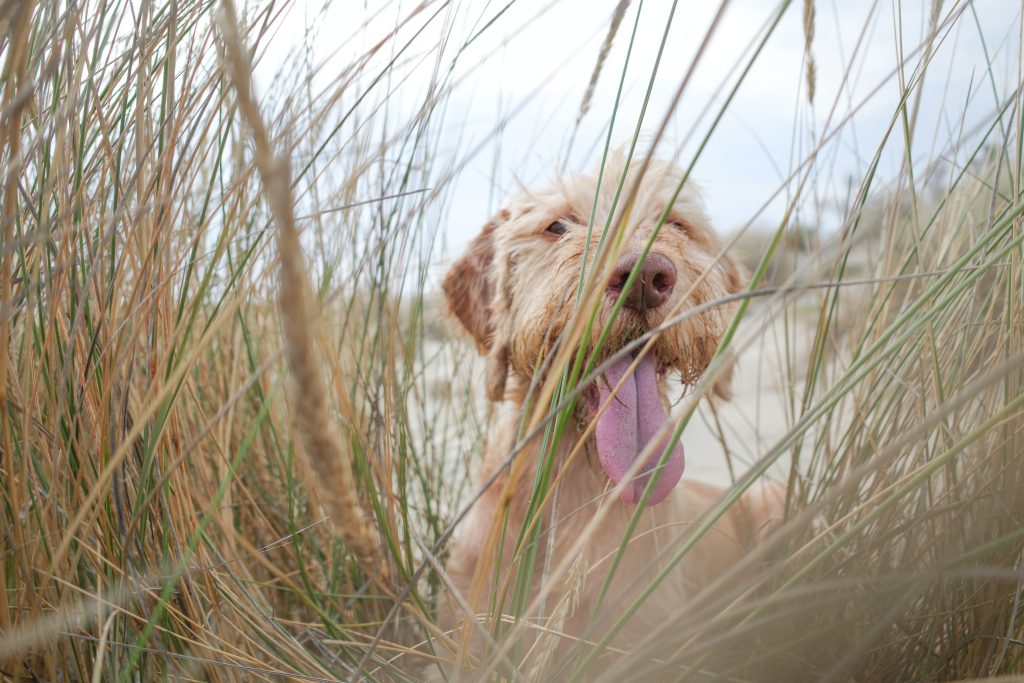Why Do Dogs Rub in Urine?
Dogs are fascinating creatures, each with a unique set of behaviors that often leave us wondering about the motives behind their actions. One such behavior that has perplexed pet owners for generations is the tendency of dogs to rub in urine. In this article, we’ll delve into the instinctual aspects of canine behavior, exploring the reasons why dogs engage in this curious ritual.

Instinctual Behavior in Dogs
Dogs, as captivating creatures, showcase a unique range of behaviors that often pique our curiosity about the motives guiding their actions. One specific behavior that has puzzled pet owners for generations is the tendency of dogs to rub in urine. So, why do dogs rub in urine? In this article, we will delve into the instinctual aspects of canine behavior, seeking to unravel the motivations behind this curious ritual.
Why Do Dogs Rub in Urine?
So, why exactly do dogs feel the need to rub in urine? The answer lies in their remarkable sense of smell. Dogs perceive the world primarily through their noses, and urine carries a wealth of information. By rubbing in another dog’s urine, they are effectively immersing themselves in a complex olfactory world, decoding scents that are undetectable to us.
The Scent Marking Ritual
The scent marking ritual involves more than just leaving a trace of urine; it’s a form of communication. Dogs can convey information about their identity, reproductive status, and even emotional state through the chemicals present in their urine.
Communication Through Scents
In the dog world, communication through scents is an intricate language. Pheromones, chemical signals present in urine, play a crucial role in conveying messages between dogs. Understanding this form of communication is key to comprehending why dogs engage in the seemingly peculiar act of rubbing in urine.
Social Hierarchy and Marking
Beyond communication, urine marking serves a vital role in establishing and maintaining social order within a pack. Dominant dogs may mark more frequently to assert their position, while submissive dogs might use marking as a way to show deference.
Medical Reasons for Urine Marking
While urine marking is mostly a natural behavior, excessive marking could indicate underlying health issues. It’s essential for pet owners to be vigilant and consult a veterinarian if they notice abrupt changes in their dog’s marking behavior.
Preventing Unwanted Marking
For pet owners seeking to curb excessive marking, positive reinforcement and consistent training are key. Creating a positive environment and offering alternative outlets for natural behaviors can help redirect a dog’s focus.
Understanding Your Dog’s Body Language
Dogs communicate not only through marking but also through body language. Being attuned to your pet’s signals is crucial in understanding their needs and addressing any potential issues that may arise.
Common Misconceptions About Urine Marking
It’s common for pet owners to misconstrue urine marking as a behavioral problem. However, it’s important to dispel these misconceptions and recognize that urine marking is a natural and essential aspect of canine behavior.

When to Seek Professional Help
While most cases of urine marking are harmless, there are instances where seeking professional help is advisable. A dog behaviorist can provide insights and strategies to modify marking behavior in specific situations.
Case Studies: Real-Life Examples
To illustrate the diversity of reasons behind urine marking, let’s explore real-life case studies. Each case sheds light on the unique circumstances that may lead a dog to engage in this behavior.
Incorporating Enrichment Activities
Keeping a dog mentally stimulated is crucial for their overall well-being. Enrichment activities, such as puzzle toys and scent games, can provide an outlet for a dog’s natural instincts and reduce the frequency of urine marking.
Conclusion: Why Do Dogs Rub in Urine
In conclusion, understanding why dogs rub in urine requires a deep dive into their innate behaviors and communication methods. As responsible pet owners, it’s essential to appreciate and respect these natural instincts while also being mindful of potential health concerns. By embracing our canine companions’ unique ways, we strengthen the bond between humans and dogs.




Leave a comment